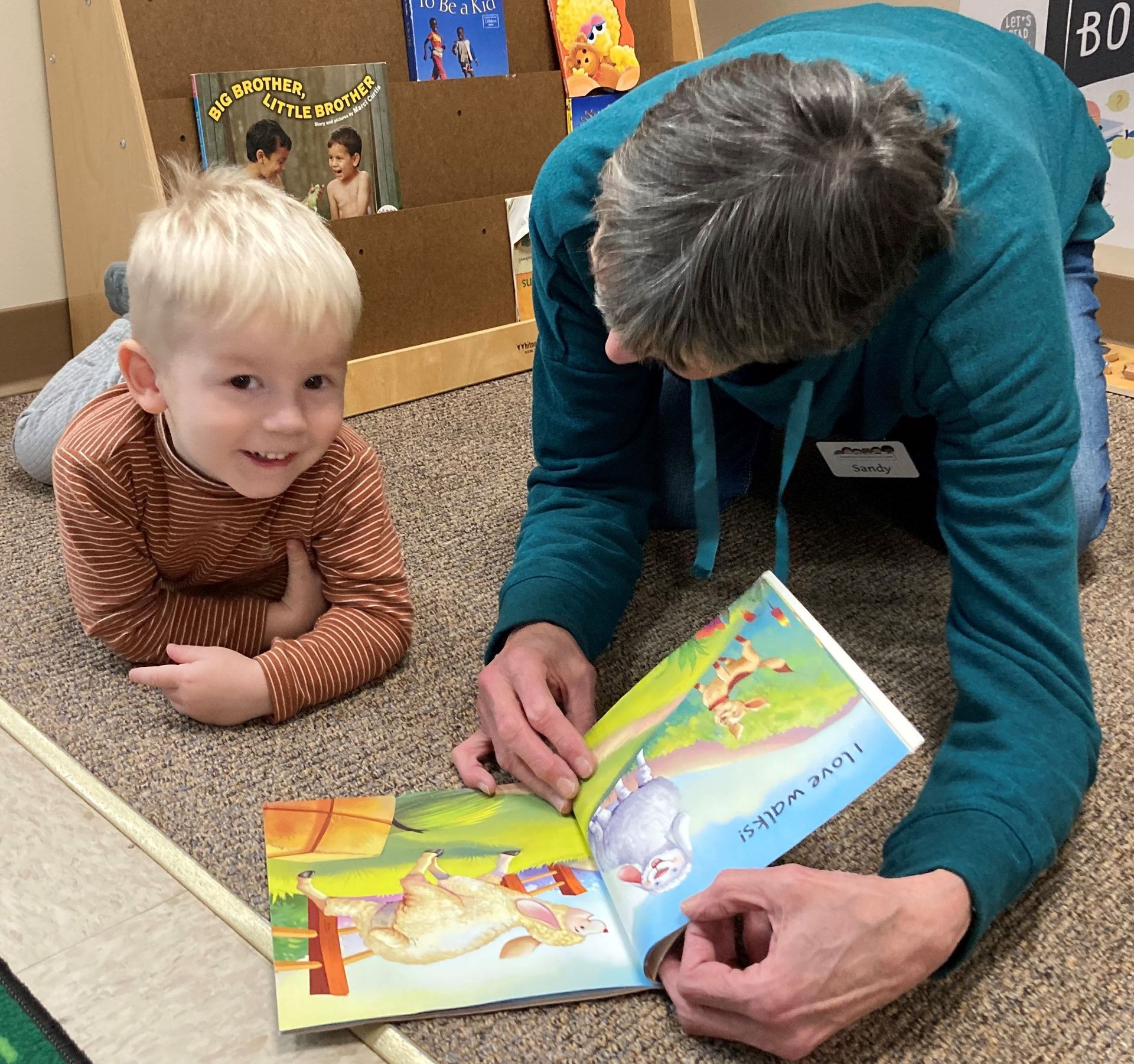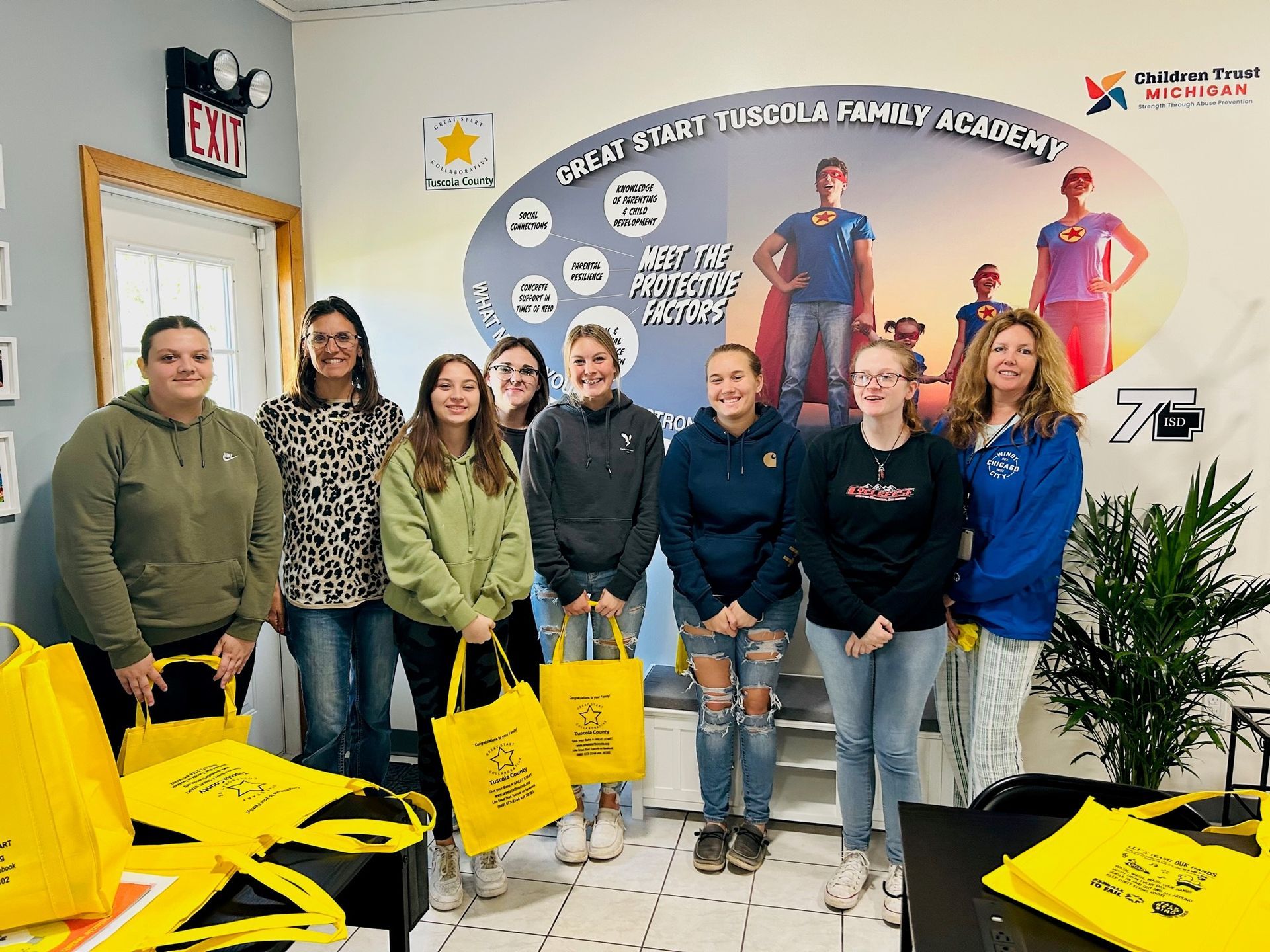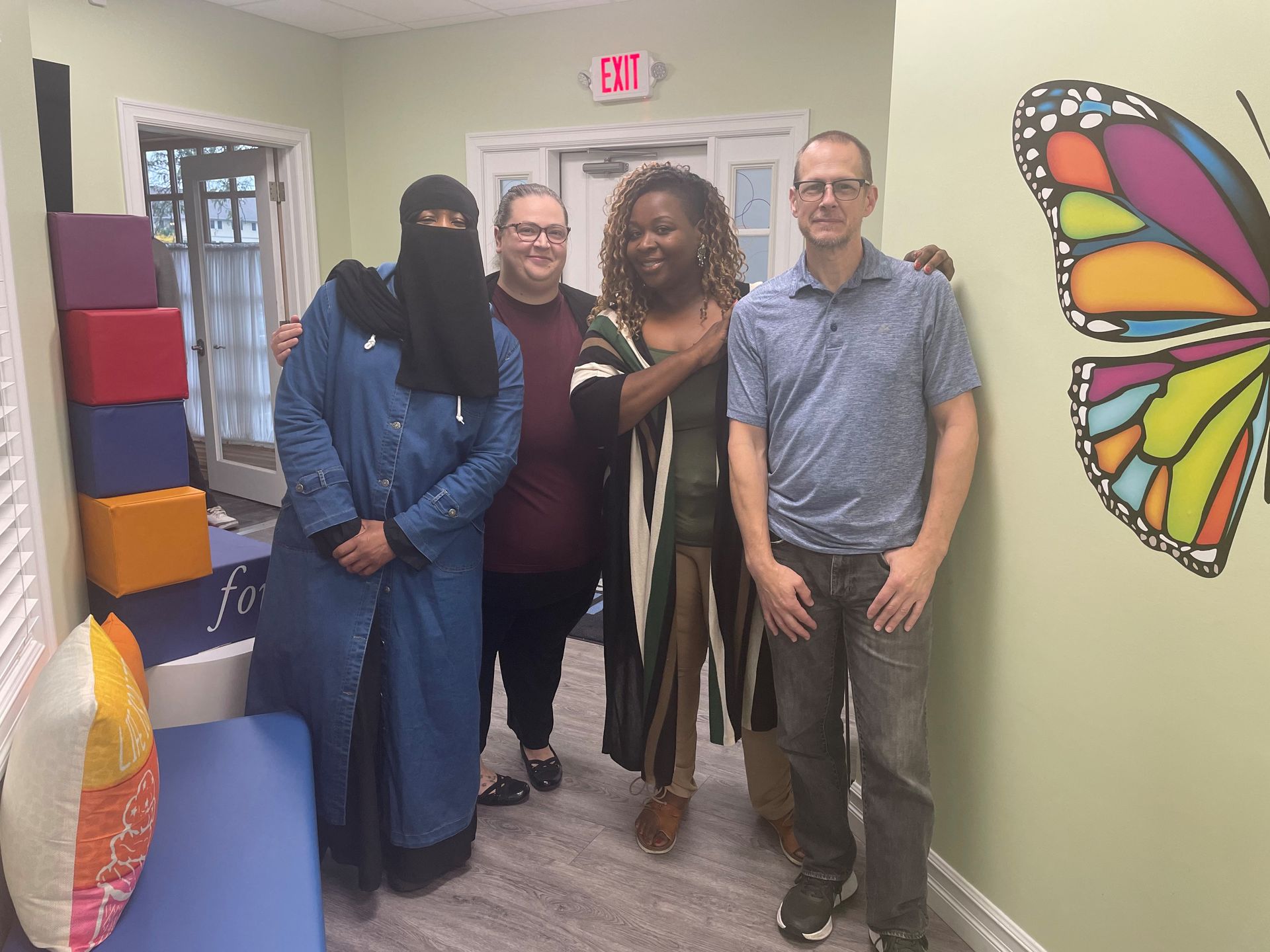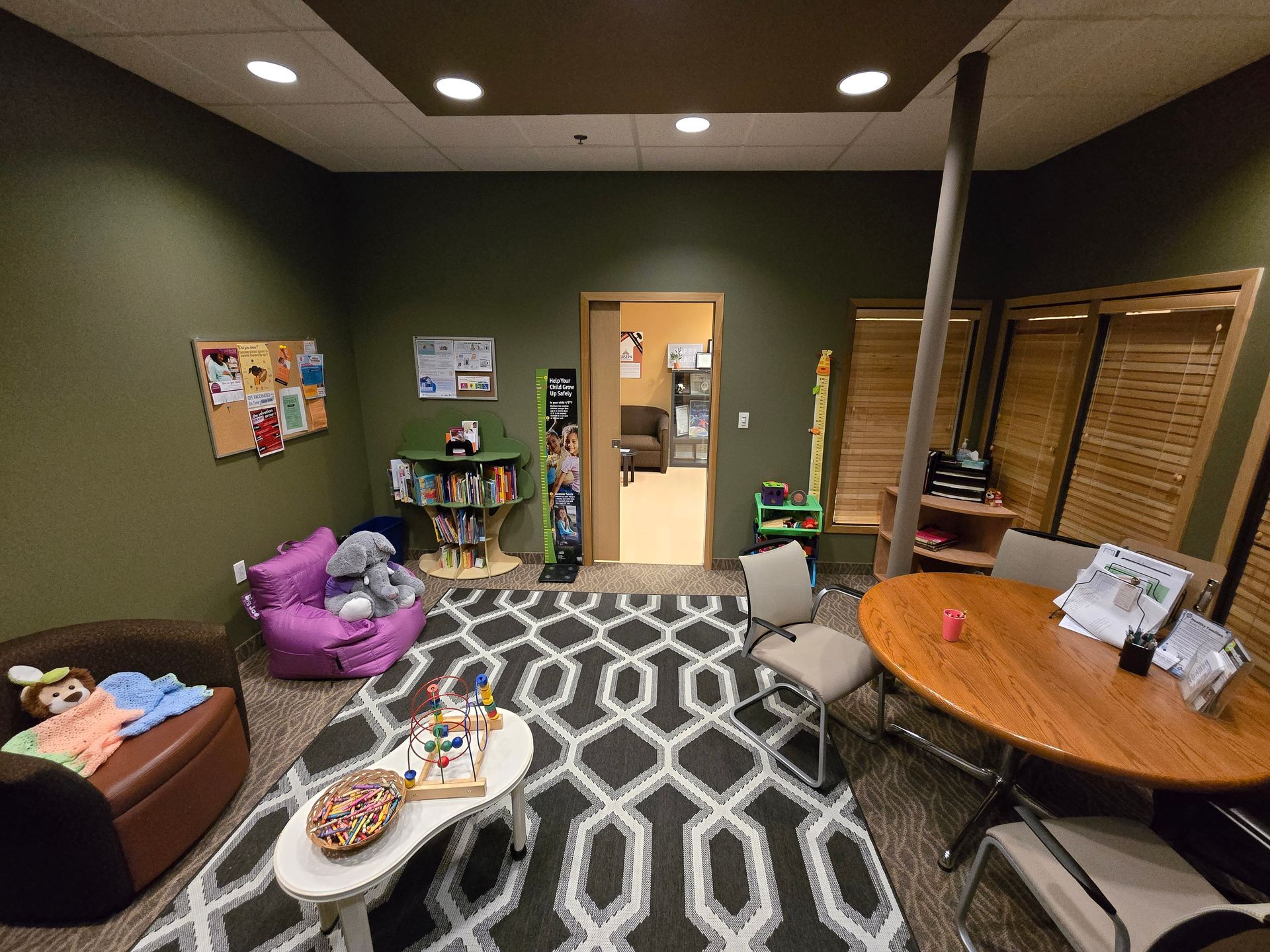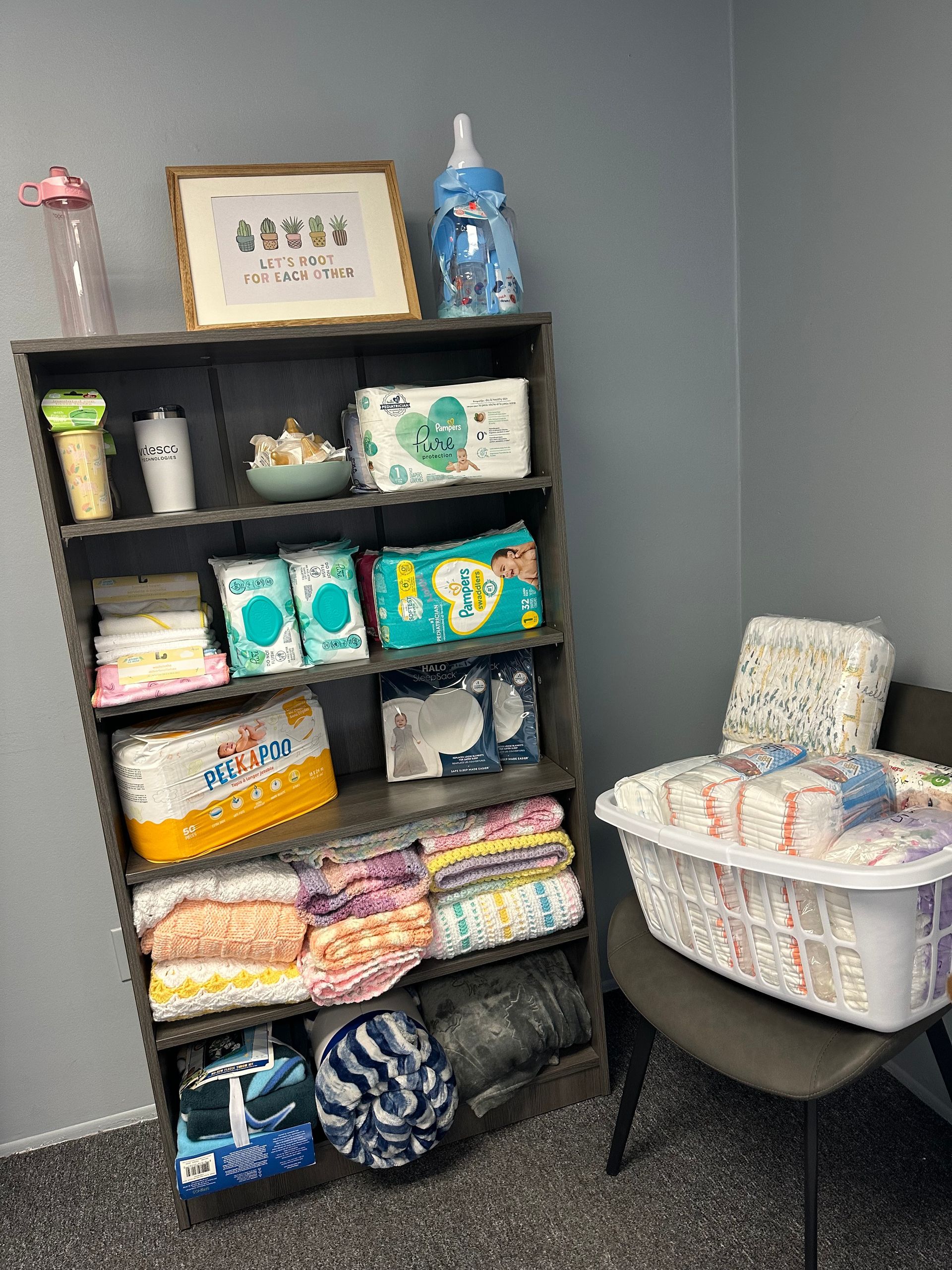Prevention Partner Programs
Children Trust Michigan currently provides funding through Primary Prevention Programs, Secondary Prevention Programs, and Family Resource Centers. Children Trust Michigan is solely focused on the prevention of child abuse and neglect since 1982.
CTM's Primary Prevention Programs are divided into the three levels below, based on the work they complete.
Inform Prevention Partner
Prevention Partners at this level primarily provide knowledge and information to their community and host one or two events each year.
Inspire Prevention Partner
Prevention Partners at this level meet all the standards required to inform Prevention Partners. In addition, they develop and provide services and/or outreach, invest in building new partnerships, and lead their community's efforts to prevent child abuse and neglect by strengthening families.
Influence Prevention Partner
Prevention Partners at this level meet all the standards required of inspire and inform Prevention Partners. In addition, they provide community leadership and integration of services or connections, as well as collaborate with partners to build systematic solutions that work to prevent child abuse and neglect by strengthening families.
What is a Family Resource Center?
Family Resource Centers utilize a multigenerational, strength-based, and family-centered approach that reflects their community's needs and interests. They provide a wide variety of services and resources that are community-focused and driven by the family's individual needs. While individual Family Resource Centers vary in their approach to service and delivery, they share a common goal of improving outcomes for all children and families.
Michigan currently has a statewide network of 11 Family Resource Centers across different counties.
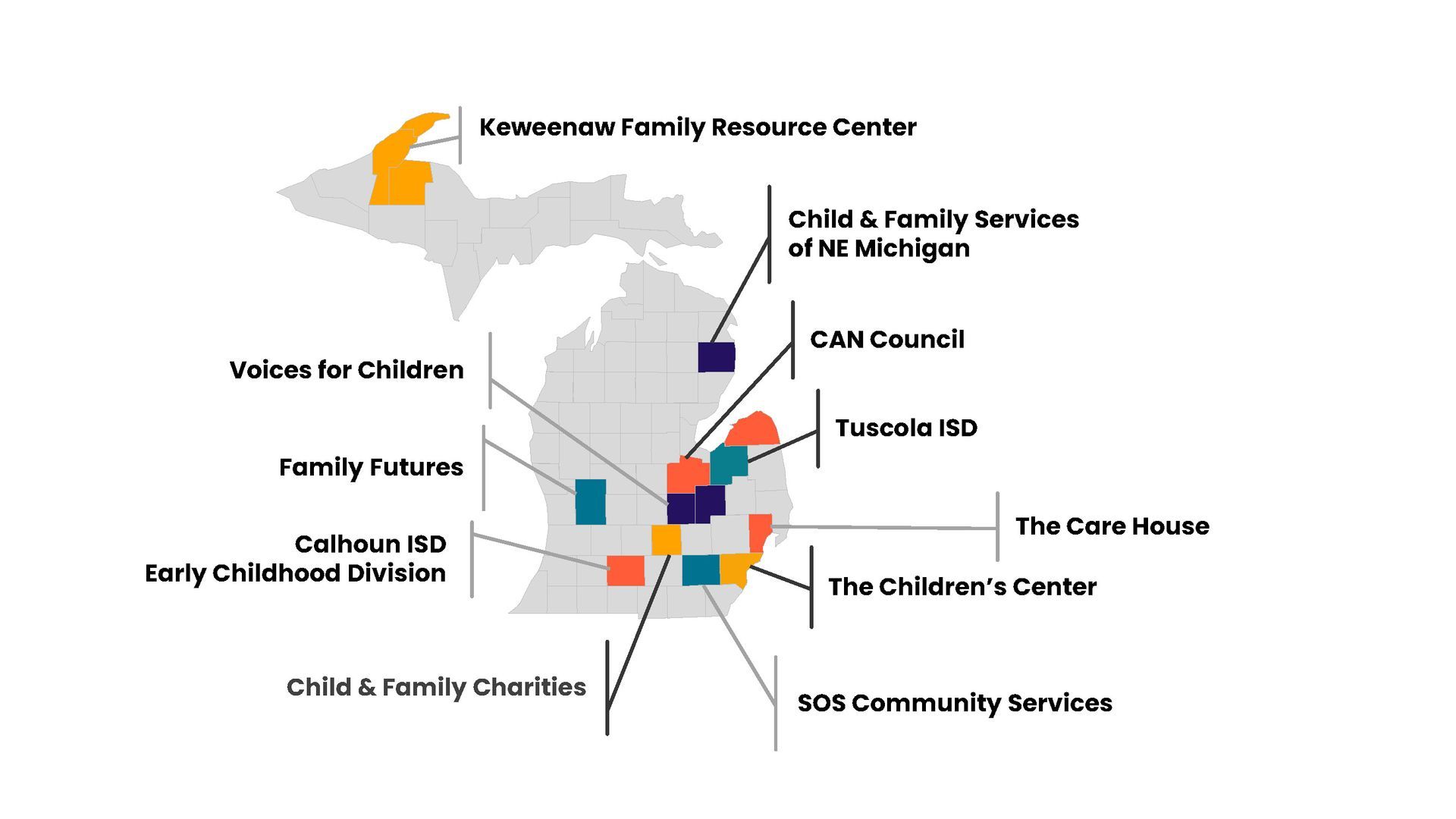
Michigan Family Resource Center Network
Michigan's Family Resource Centers are community-led, family-centered organizations that partner with caregivers to deliver support and services that respond to each family's individual needs and values. FRCs are places where families can connect with one another and with resources they value. FRCs are committed to creating safe, nonjudgmental, welcoming environments where all families feel that they belong, feel a sense of ownership, and can see themselves reflected.
Goals of MI 11 Family Resource Centers
- Support families to be strong, healthy, and successful.
- Contribute to building a strong and healthy community.
- Reduce the likelihood of child abuse and neglect by building the research-informed Strengthening Families Protective Factors.
What is Happening Around the Network
Michigan Family Resource Center Data
Since the Start of FY23
